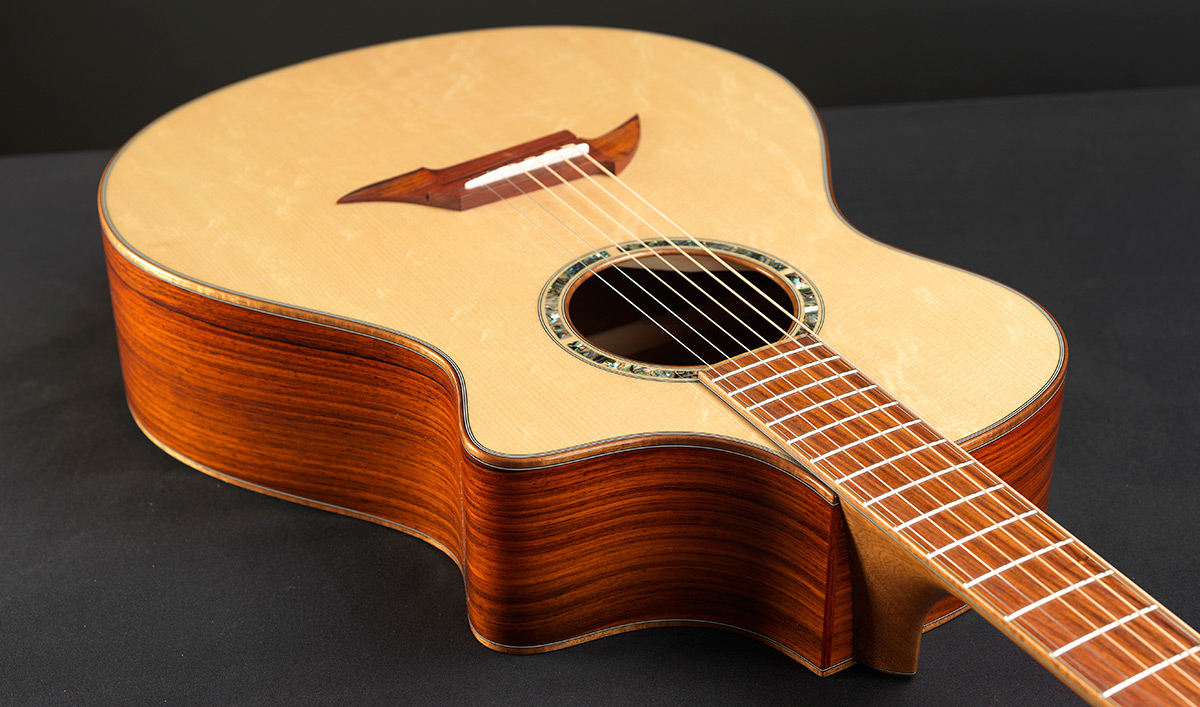
This stunning custom soft-cutaway concert acoustic guitar was crafted with a bear claw Sitka spruce top and exotic cocobolo back and sides. The winged bridge is also crafted from cocobolo. This acoustic guitar was designed and built for The Guitar Sanctuary.
About the Concert Body Shape: The Concert is our most popular body shape, favored by players because it is well-balanced, compact, comfortable to play, and offers all the qualities of a great sounding guitar. It generates a wonderfully articulate range of tone with an ample low end that is never boomy, but always felt. The Concert works well when played fingerstyle, as vocal accompaniment, or at a full strum. Learn more about this acoustic guitar body shape.
Cocobolo: Cocobolo is dark, and dense, with a bright, clear, sustaining voice and a tone that is very similar to the best rosewood. Provides well-balanced tone with power, sustain and volume. Responsive, with clear, slow-decaying harmonics and a well-articulated and complex low end. Similar to Brazilian rosewood with a little less bass and more pronounced treble. Rich brown-red coloration with black streaks. Considered the closest tonally and aesthetically to Brazilian rosewood. Learn more about this tonewood.
Bearclaw Sitka Spruce: Bearclaw Siika spruce has a shallow, cross-grain curl that seems to increase cross-grain stiffness in acoustic guitars. Many luthiers feel that it enhances the tone and sustain of spruce. Strong, focused tone with strong fundamental — perfect for flatpicking styles. Usually takes a slightly longer period of playing time to open up. Not so cleanly defined as European spruce but, instead, as warmer, more fundamental, and largely free of overtones. It’s a good, solid sound and bluegrass flatpickers and folk-musicians tend to like it a lot. Looks like a bear has clawed across the grain of the wood. Highly appreciated for its unique patterns, resulting in an eye-catching shimmer. The figure in bearclaw is not actually caused by a bear clawing the tree. While the true cause of the figure is unknown, it is widely assumed to be caused by either genetic mutation or climactic stress. Learn more about this tonewood.
